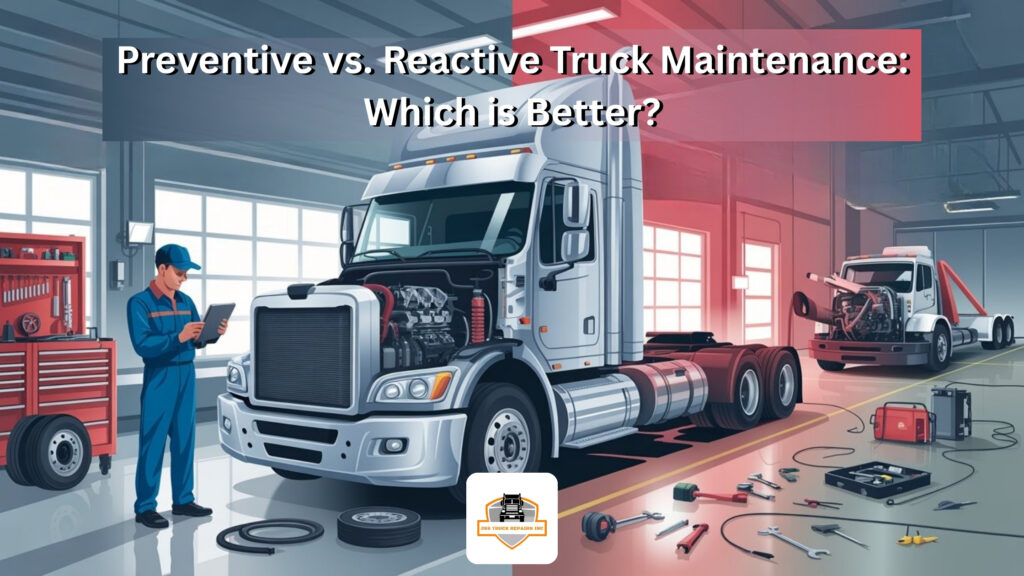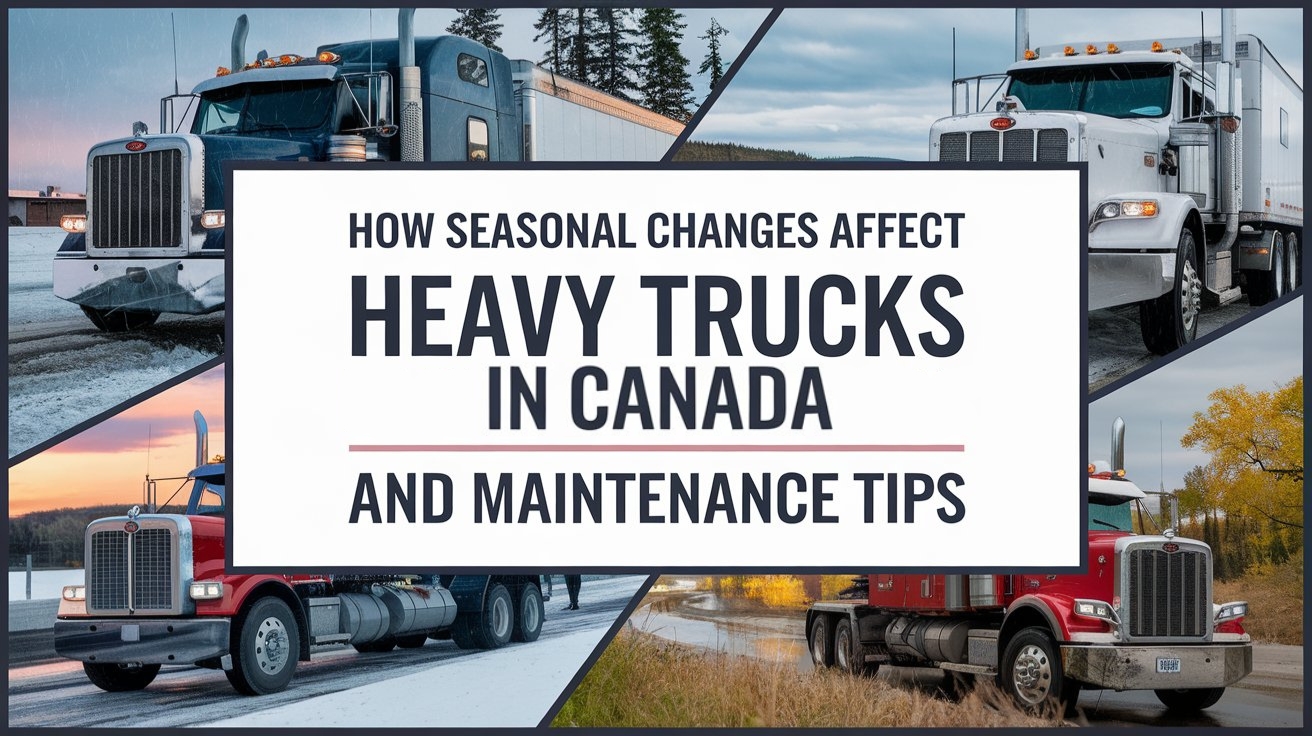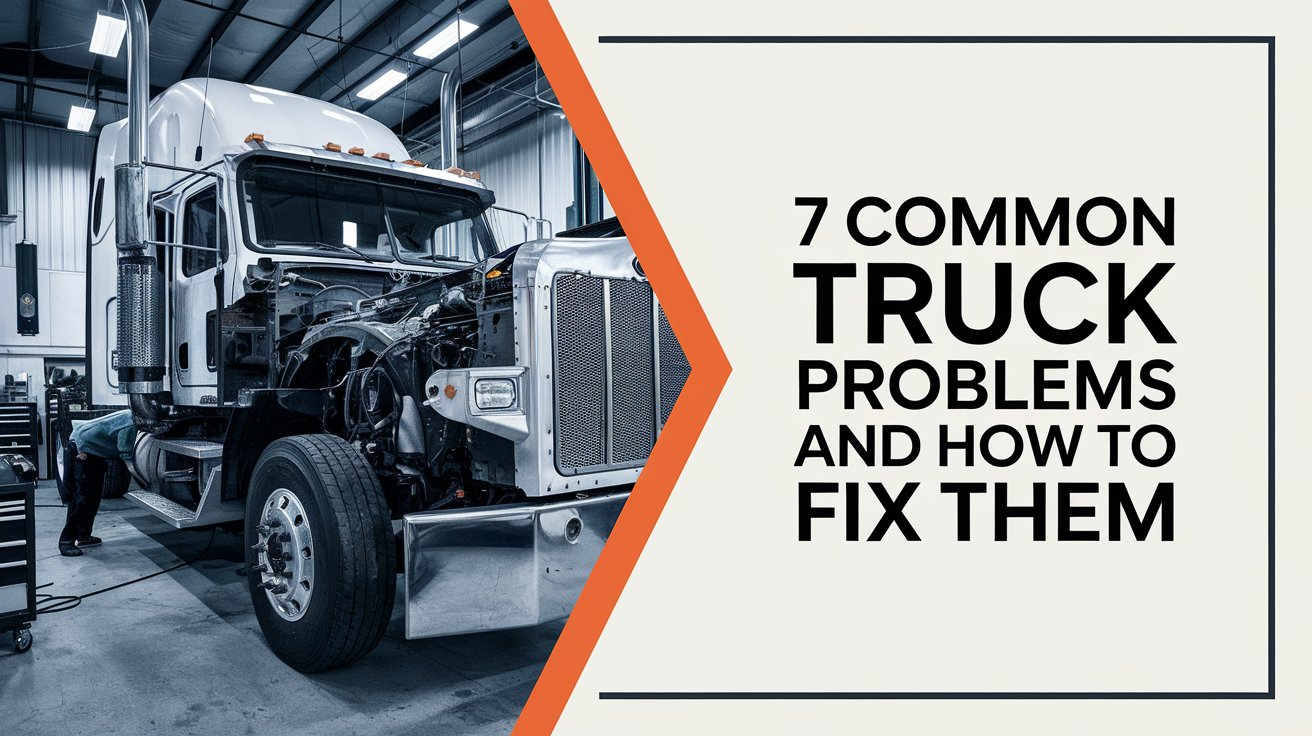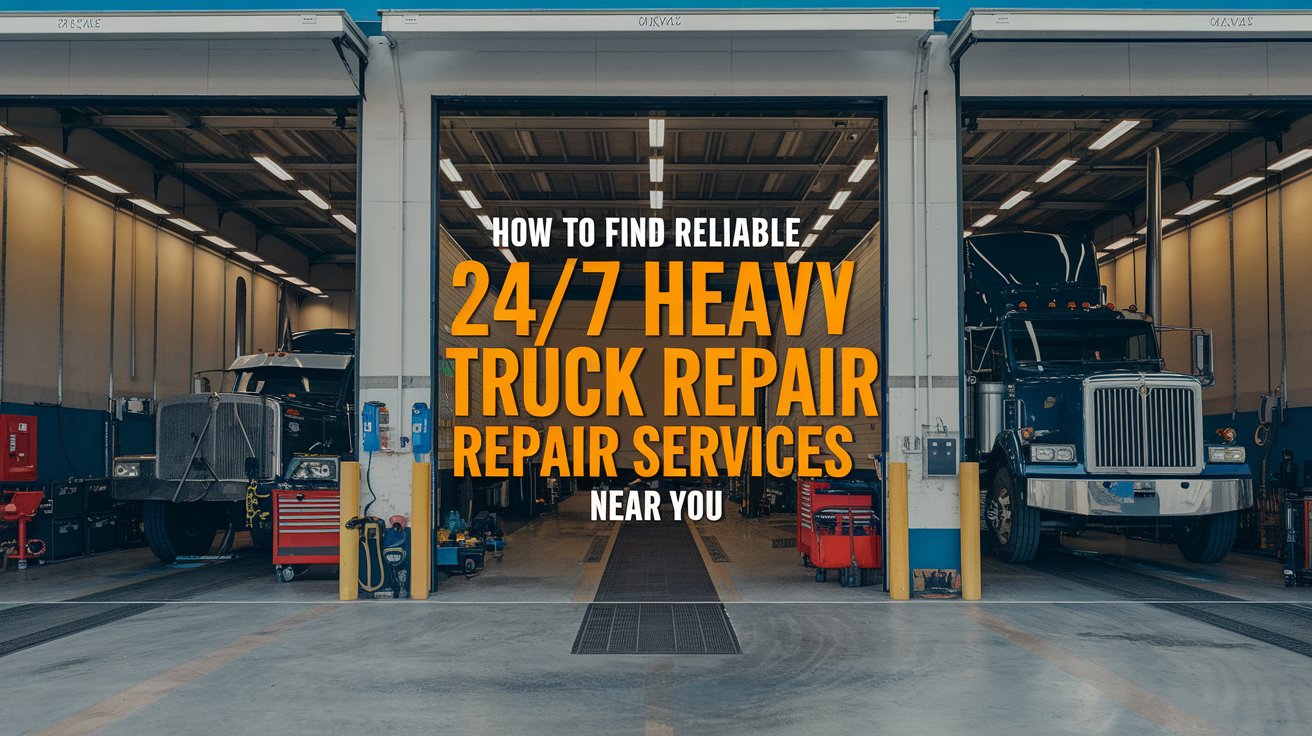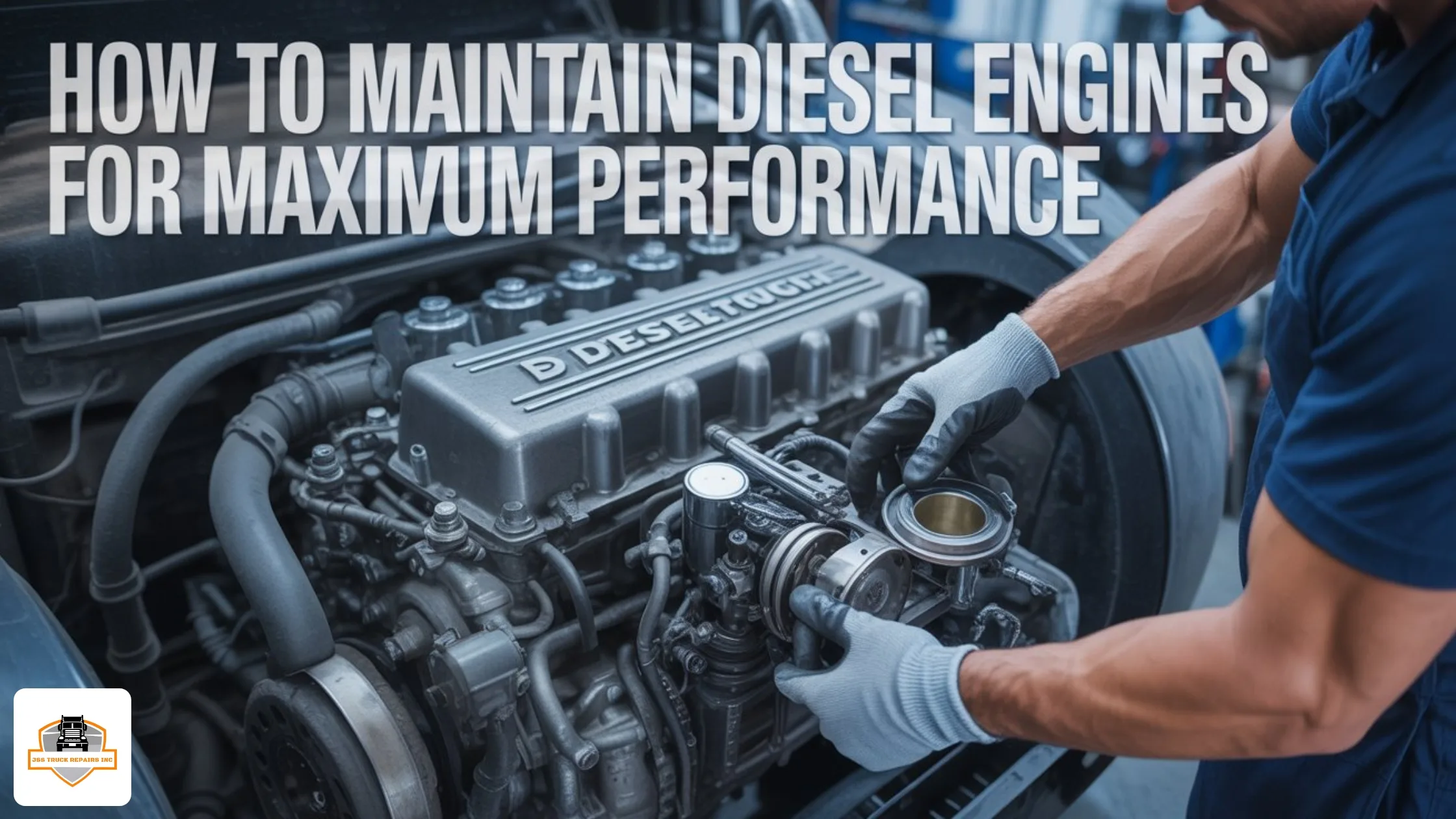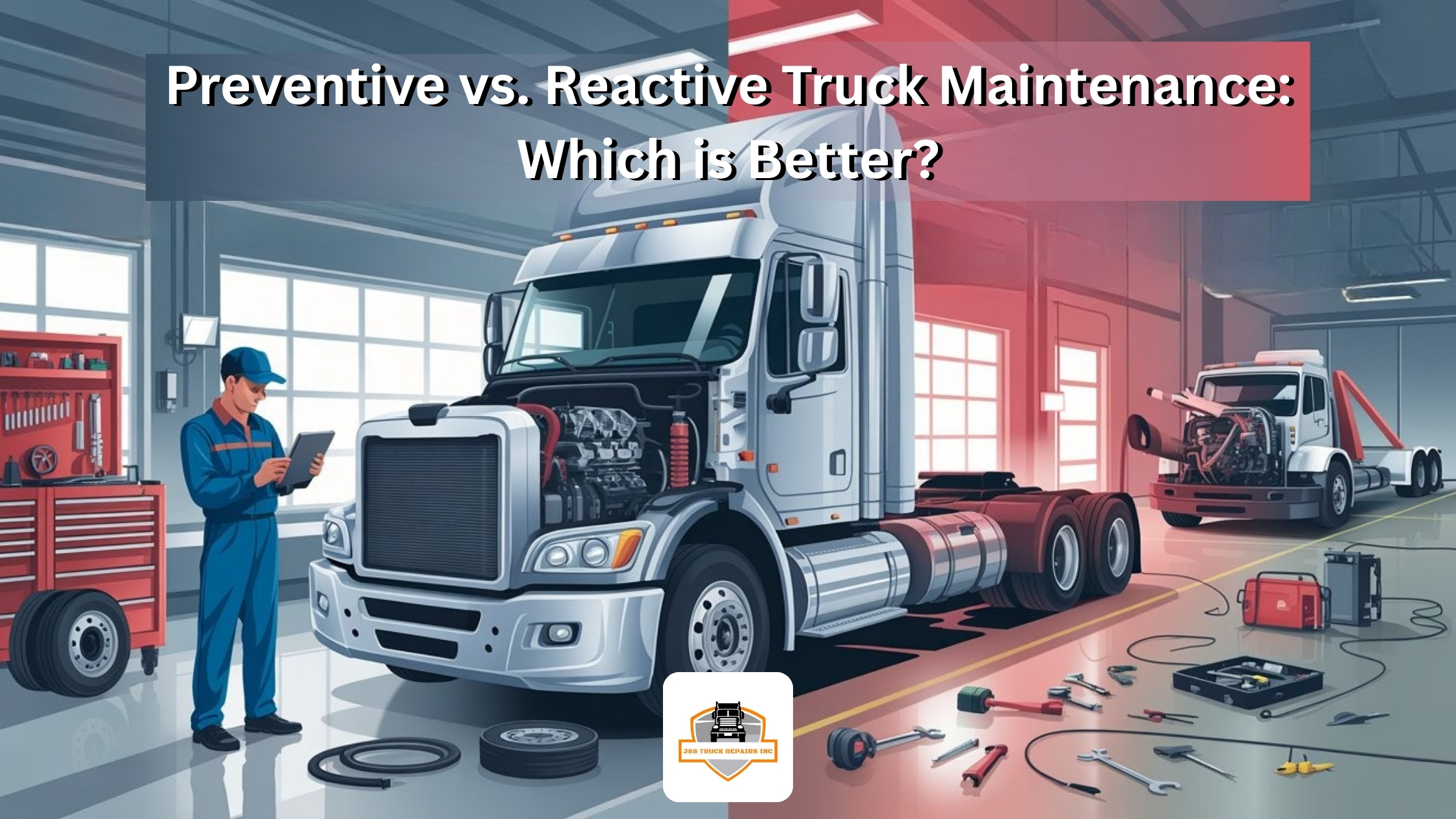For any fleet owner, logistics manager, or independent truck driver, maintenance is one of the most important aspects of keeping vehicles safe and road-ready. But when it comes to preventive vs reactive truck maintenance, which approach really works better for your bottom line, your safety, and your long-term truck performance?
This guide breaks down both strategies, their pros and cons, and why preventive care is often the smarter choice for fleets.
What is Preventive vs Reactive Truck Maintenance?
Before deciding which approach fits your business, it’s important to understand the difference:
- Preventive Maintenance
This is a planned and proactive approach. Trucks are serviced on a schedule—oil changes, tire checks, brake inspections, and wheel alignments—before parts fail. Preventive maintenance helps identify issues early and prevents breakdowns on the road. - Reactive Maintenance
Also called “run-to-failure,” reactive maintenance only happens when a truck breaks down or a part fails. Repairs are made after the fact, which can lead to unexpected costs, downtime, and safety risks.
Both methods are used across the trucking industry, but their impacts on cost, reliability, and safety are very different.
Pros and Cons of Preventive Maintenance
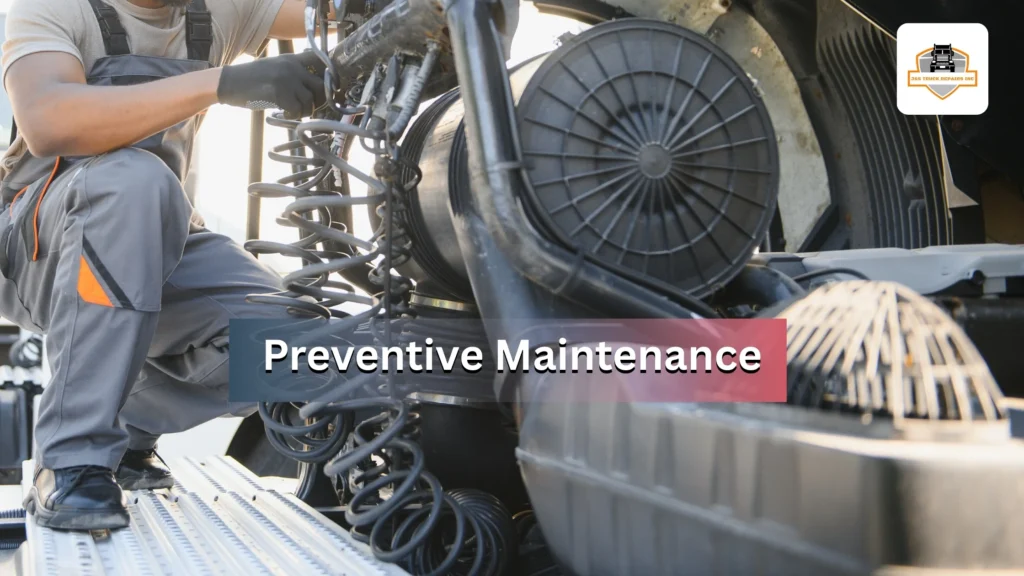
Advantages:
- Lower downtime risks – Trucks are less likely to break down unexpectedly.
- Better fuel efficiency – Regular checks (like wheel alignment and air filter replacements) improve performance.
- Extended truck lifespan – Preventive care reduces wear and tear.
- Improved safety – Well-maintained brakes, tires, and suspension systems prevent accidents.
- Predictable costs – Scheduled maintenance allows better budgeting.
Disadvantages:
- Upfront expenses – Preventive services may seem costly at first.
- Time commitment – Scheduling regular service requires trucks to be taken out of rotation temporarily.
Pros and Cons of Reactive Maintenance
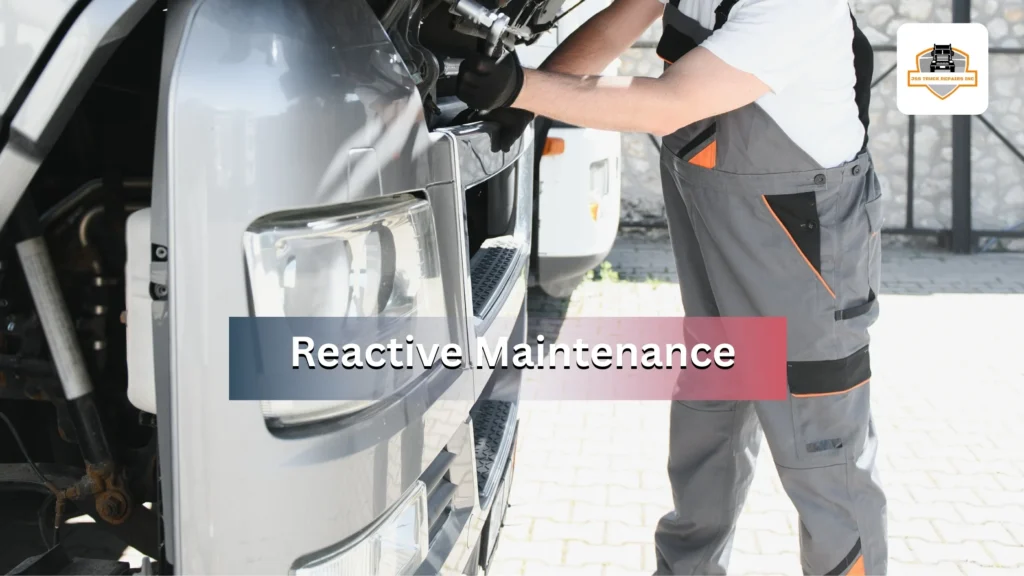
Advantages:
- Lower short-term costs – No money spent until something fails.
- Simple to manage – Repairs are made only when needed.
Disadvantages:
- Unplanned downtime – Breakdowns often happen on the road, delaying deliveries.
- Higher long-term costs – Emergency repairs, towing, and replacement parts add up quickly.
- Safety risks – Faulty brakes, blown tires, or engine failures put drivers at risk.
- Reduced lifespan – Frequent breakdowns shorten a truck’s useful life.
Cost Implications: Preventive vs Reactive Truck Maintenance
When comparing preventive vs reactive truck maintenance, cost is a major factor for any trucking business.
- Preventive maintenance costs are spread out and predictable. You know how much you’ll spend on oil changes, brake checks, and inspections every quarter.
- Reactive maintenance costs are often sudden, large, and disruptive. A roadside breakdown could mean repair bills, towing fees, replacement parts, and lost revenue due to delivery delays.
Example: A fleet in Semi Truck Repair Etobicoke might spend a few hundred dollars per truck on scheduled oil changes and brake inspections. However, waiting until a brake failure occurs could cost thousands of dollars in emergency repairs—not to mention the loss of customer trust if deliveries are delayed.
Downtime Risks in Trucking Operations
Downtime is one of the biggest hidden costs of reactive maintenance. Every hour a truck is off the road, deliveries are missed and revenue is lost.
- Preventive maintenance minimizes downtime by addressing small problems before they grow.
- Reactive maintenance often leads to longer downtime because parts need to be ordered, and trucks may be stuck far from a repair shop.
For logistics companies operating multiple vehicles, downtime costs can multiply quickly.
Safety Benefits of Preventive Maintenance
Safety should always be the top priority in trucking. Preventive checks like air brake inspections, tire monitoring, and alignment adjustments keep drivers safe and compliant with industry regulations.
Common preventive measures that boost safety include:
- Brake system checks (see our Air Brake System Troubleshooting Guide for Truck Drivers)
- Regular wheel alignment for better handling
- Tire pressure monitoring to avoid blowouts
- Oil and filter changes for smoother engine performance
In contrast, reactive maintenance often means discovering safety issues after something goes wrong—which can put drivers, cargo, and other motorists at risk.
Preventive Maintenance Tips for Fleet Owners and Drivers
Here are some practical steps to keep your trucks in top shape:
- Create a maintenance schedule – Track mileage and set regular intervals for inspections.
- Use driver inspections – Encourage drivers to report unusual noises, vibrations, or warning lights.
- Keep digital records – Logging maintenance history helps fleet managers spot recurring issues.
- Partner with trusted repair shops – For example, at JSS Truck Repairs Inc., preventive services are tailored to the specific needs of semi-trucks and fleets.
- Include trailer checks – Don’t forget that trailer brakes, tires, and suspension need preventive care too.
Why Preventive Maintenance is Better for Fleets
When weighing preventive vs reactive truck maintenance, the long-term benefits of preventive care clearly outweigh reactive strategies.
- Cost Savings – Avoid emergency breakdowns and expensive part replacements.
- Reliability – Fewer delays and more on-time deliveries.
- Fleet Longevity – Well-maintained trucks serve longer and retain higher resale value.
- Driver Satisfaction – Safe, comfortable trucks help retain drivers in a competitive market.
- Customer Trust – Consistent performance improves relationships with shippers and clients.
Simply put, preventive maintenance is not just about fixing trucks—it’s about protecting your business.
Semi Truck Repair Etobicoke: Choosing Professional Maintenance
If you’re a truck owner or fleet manager in Etobicoke, professional support makes preventive care easier. At JSS Truck Repairs Inc., our experienced technicians provide comprehensive services including:
- Oil changes and filter replacements
- Wheel alignment and tire services
- Brake inspections and repairs
- Diagnostic checks to prevent costly failures
- Fleet maintenance programs customized to your operation
You can learn more about our services on our About Us page or schedule your next appointment directly through our Contact Us page.
Final Thoughts: Preventive vs Reactive Truck Maintenance
When it comes to preventive vs reactive truck maintenance, both approaches exist, but only one ensures long-term success for fleets. Preventive care reduces costs, improves safety, minimizes downtime, and extends the life of your trucks. Reactive maintenance may seem cheaper at first, but the risks and expenses quickly outweigh the benefits.
For truck drivers, fleet owners, and logistics businesses in Etobicoke, investing in professional preventive maintenance is the best way to protect both your vehicles and your bottom line.
Book Your Preventive Maintenance Service Today
Keep your trucks running safely and efficiently with expert preventive care. Contact JSS Truck Repairs Inc. today and schedule your fleet’s next maintenance service.
